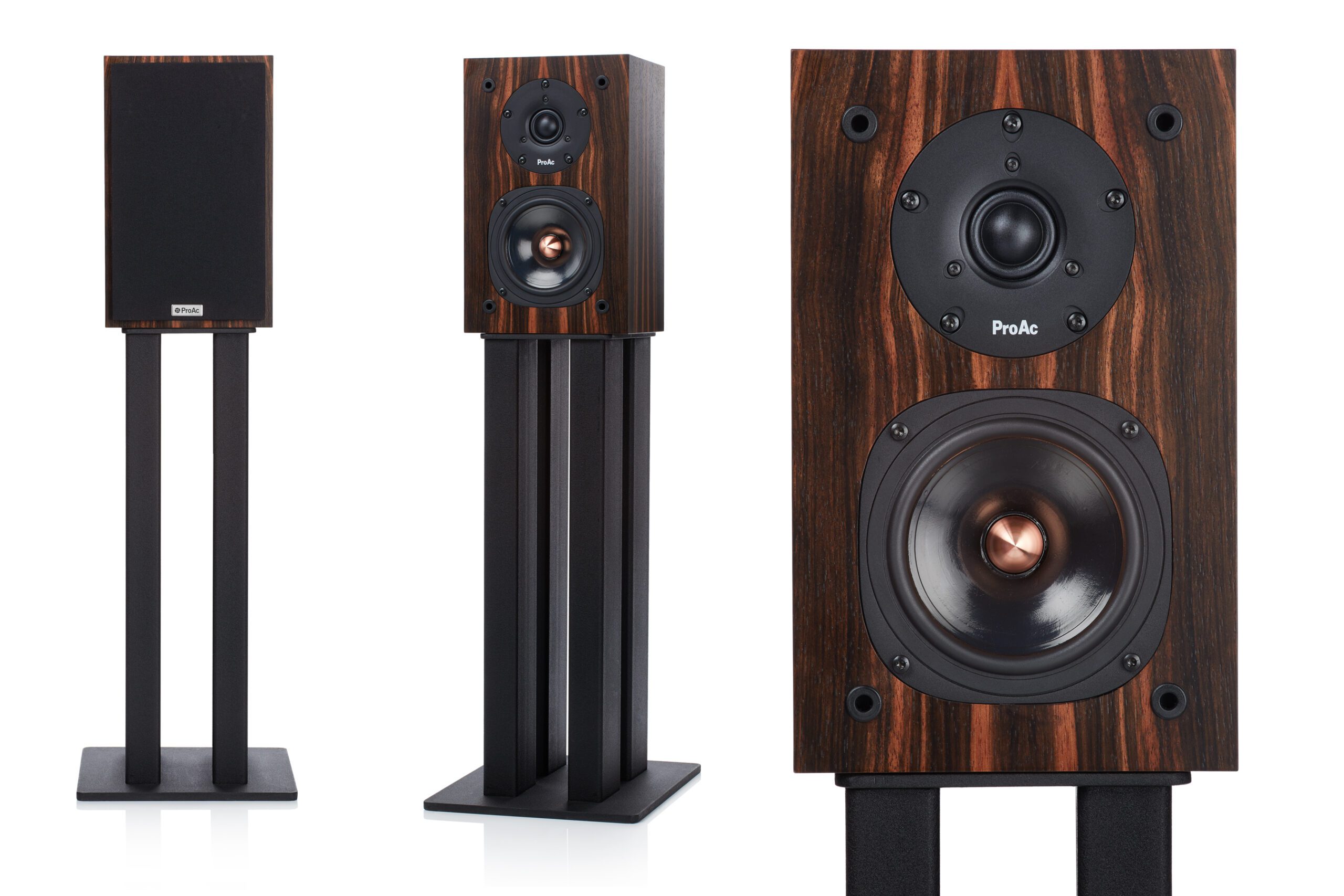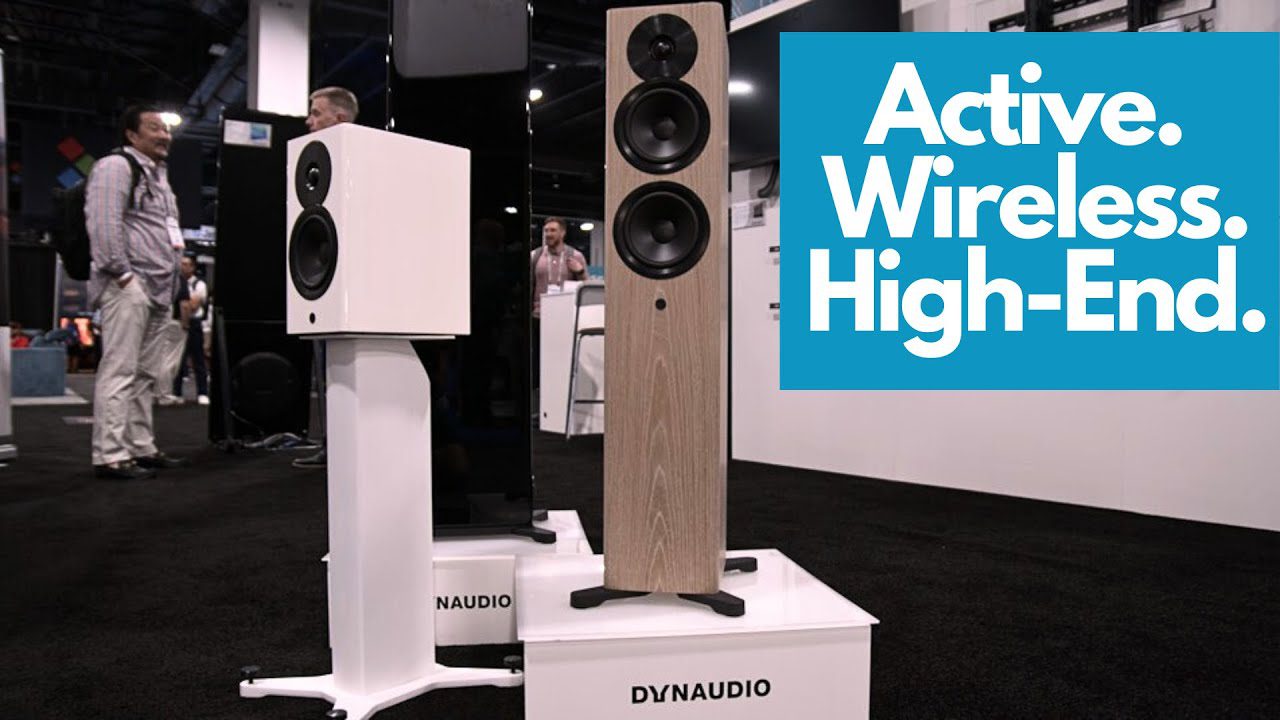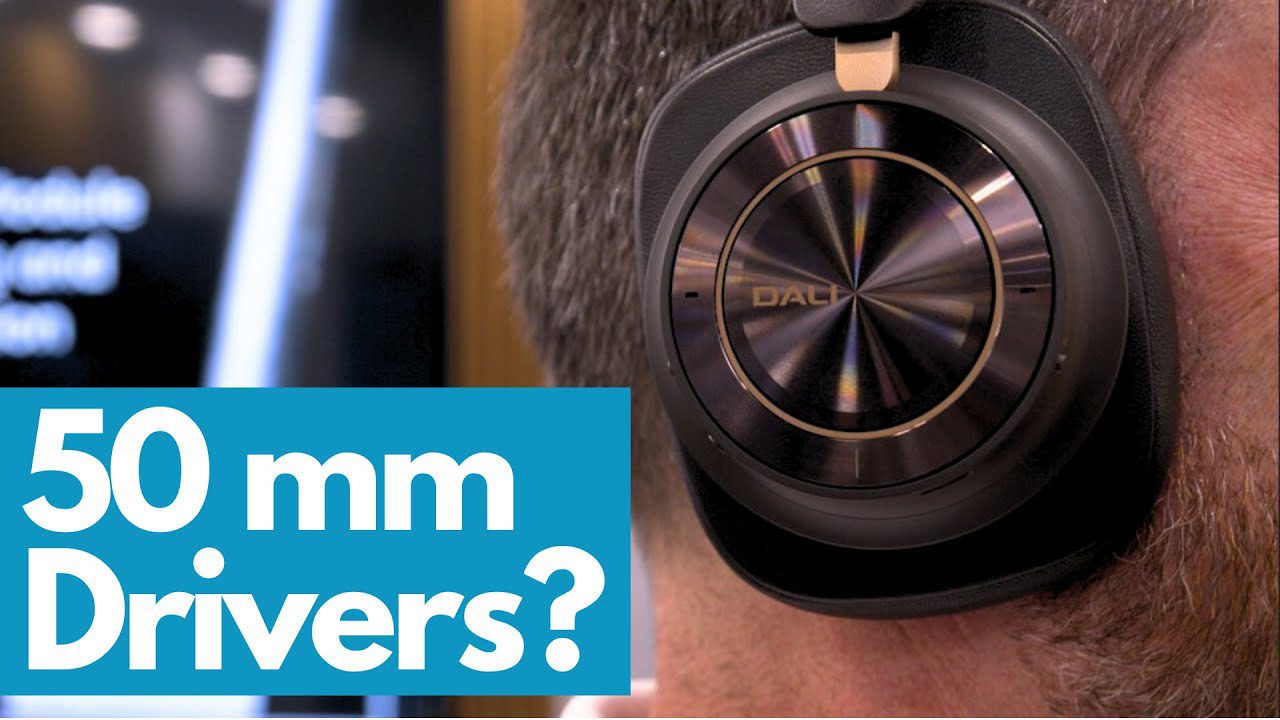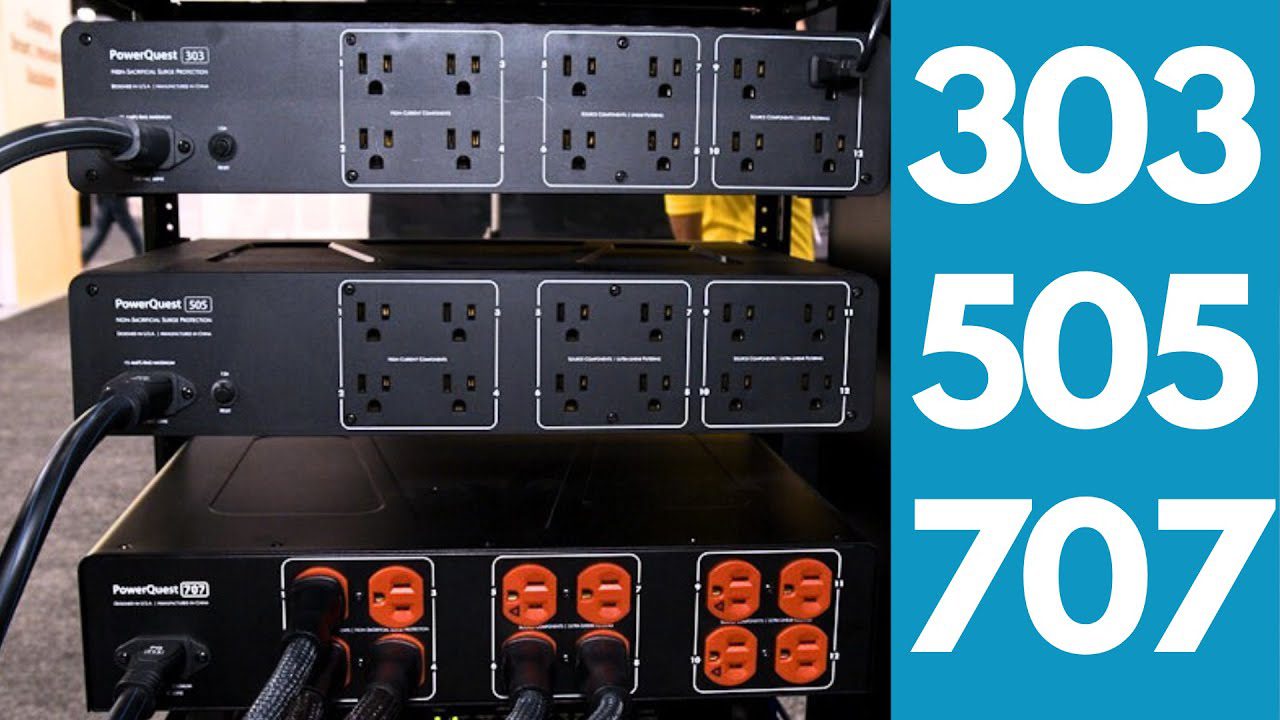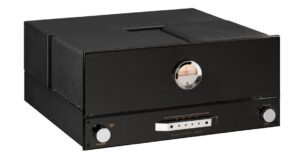
Unless you have been living under a rock for the last few years, the fact the audio world has changed almost unrecognisably recently can’t have passed you by. CD and even download sales are in steep, and some say even terminal, decline, eclipsed by the new world of audio streaming. Our audio products are beginning to reflect this, but slowly. Electrocompaniet’s bold EC Living project is more than just grudging acceptance that times have changed; it’s a bold and powerful welcome to the future of audio.
EC Living is a simple yet deceptively clever, extendable, and extremely flexible set of products totally designed and built in Norway to grow with your musical requirements if needed, or remain just a single, network-connected box of tricks. The first two products out of the starting gates are the TANA SL-1, which combines loudspeaker, amplifier, and streamer in a cabinet about the size of a conventional two-way standmount design, and the TANA L-1, which is the wireless add-on speaker to turn a single SL-1 into a stereo pair. The SL-1 can be set up as a specific zone in a house, can run wired or wirelessly as a UPnP renderer, can support a USB stick, or local coaxial and Toslink digital connections. On the cloud, it can connect to Tidal (or sister channel WiMP in some regions), Qobuz, Spotify, and play internet radio. It will support practically any file, even up to 24bit, 192kHz PCM and DSD128. The TANA SL-1 can even support Apple AirPlay, although Electrocompaniet recommends not using this pathway when playing from Spotify or Tidal, preferring instead to use its own EC Remote App, or control direct from a computer.

Extendable means other products will become available in time. And this is related to what people need and where the music industry takes us over the next few years, rather than shoe-horning people into a fixed solution that no longer fits the world around us. The next product is intended to be the RENA S-1, a dedicated EC-Living streamer designed specifically to connect TANA L-1 speakers to make an alternate stereo system from the SL-1/L-1 package. Planned additional devices included multichannel surround systems, video streamers, or devices that allow EC Living to access an existing audio system, but these options remain truly open. Nevertheless, there are some pathways not open to the TANA SL-1 as it stands, such as Bluetooth. However, it runs along 802.11ac wireless protocols using Multiple Input Multiple Output (MIMO) channels, making the EC Living system about as robust as it gets in the widest number of homes without demanding ‘enterprise’ grade Wi-Fi.
Alongside the digital electronics side, the loudspeaker itself (whether SL-1 or L1) is a two-way bass-reflex standmount using custom specified drivers and an aluminium enclosure, coupled with a 150W Class AB (as opposed to Class D) power amplifier and some subtle DSP correction. The top panel is a neat glass effect and the speaker comes in a choice of black, silver, or shiny copper bases.
The top panel of the TANA SL-1 is the whole status indicator of the unit. The central Electrocompaniet ‘E’ glows as a power indicator, there are touch buttons for volume up, down, and standby. There are also three little indicators on the right hand side that give a surprising amount of status indication, from start-up to signal clipping.
How it works is as follows. You initially plug the TANA SL-1 into your Wi-Fi router using an Ethernet cable. This is more to establish a handshake between router and TANA SL-1 without having to manually enter the Wi-Fi password (as the TANA SL-1 only has three little display lights and no means of entering a password directly). Once you establish communications between your TANA SL-1, your iOS or Google Android device using the EC Remote App and run through the start-up and configuration procedure, the system will automatically do the rest. You will need to name your unit, set it for mono use or stereo with the L-1, test the audio output and network robustness, login, add your music files and services, and you are done. You can then go back in and reconfigure the TANA SL1 to be a wireless zone of the App itself, thereby allowing you to disconnect the unit from the network and use it wirelessly.

As with any computer-side process, describing it is usually more complicated than actually doing it. Here the system behaves so intuitively and logically it’s hard to think of using another system once you have acclimated yourself to it. And in many respects, the acclimation process is more about unlearning the idiosyncrasies of other systems, than it is learning how to use the EC Remote App. In essence, the way to think of it is simple (although it took me almost a week to unlearn other schemes to get to this point): The EC Remote app is the heart of the EC Living system, it follows you around, and you access the specific zone wherever you are. This runs in completely the opposite direction to something like the Naim system, which treats the app as a controller that connects to specific devices within their own zone. This might sound like a nuanced difference, but the older systems are more like client terminals in a traditional client-server network, where EC Living is more about network attached devices being accessed in an Internet of Things (IoT) space.
Other systems had the advantage of being first out the starting gates, but EC Living has the benefit of working in the way products are now working in the second decade of the 21st Century. This is why the EC Living was first shown to the audio press more than two years ago at Munich 2014 and is only now coming to market. It’s not that Electrocompaniet was dragging its heels; even by 2014, it was clear changes were happening to the way people acquire audio and those changes needed to be more robust and in place before EC Living could launch.
This getting it right for tomorrow is more important than it might first seem. Many ‘next-gen’ systems – even the really good ones – end up being compared to Sonos, and while sonically they are often superior, products that compete with Sonos tend to fall down on app control. And, the concern here was that EC Living would be yet another SuperSonos. That time spent understanding the market and learning how to create a true IoT device almost immediately breaks the connection with Sonos and makes it something subtly, but completely, different.
With one TANA SL-1 and one TANA L-1, our options for testing were a trifle limited; single zone single speaker, or single zone stereo speaker. Checking how well the system works with multiple zones remains untested, but the rest of the app is solid, and I suspect this aspect of the system would be just as untouched by performance problems as the rest of the system.
What I like about the EC Living system is it needs no apologies to be made about its performance. The loudspeaker behaves like a conventional ported two-way loudspeaker, and actually a pretty good one at that. It’s driven by a clean and organic sounding amplifier and the whole package sounds as good as many amp and speaker systems you could get for the money. In particular, it’s clean, fast, tidy, ordered, surprisingly deep, and keeps good time. It can go relatively loud, too, but this probably isn’t the first choice in home PA party speakers, even if its wireless capability means it can go practically anywhere there is a plug socket in a Wi-Fi connected home.
A system like this needs to be all things to all people, and the EC Living concept understands that on a cellular level. This is a system that’s made for Tidal; it comes alive when discovering new CD-quality streamed music files and both music discovery and on or off line listening with high-grade recordings is a pleasure. But, if you are out of luck and your next musical peccadillo is not in your own network connection or on Tidal or Qobuz, you don’t sacrifice too much by listening to Spotify. You can tell the difference in performance, but the difference in performance is not screamed at you with a thinner or grainier sound. And EC Living is even relatively forgiving of signal compression. It’s certainly more forgiving than I am; that Californication album by the Red Hot Chili Peppers [Warner Brothers] has some good tracks on it, if you can get past the fact that even the silences are too damn loud. For me, that is almost out the running for that reason, but the EC Living’s more diplomatic approach to music making helps make tracks like ‘Around The World’ seem almost listenable. Yet it manages to do this without sacrificing dynamic range and resolution when it’s called for.
Ultimately, the speaker compares well to bigger boxes thanks to that DSP tailoring, but if you compare it directly to a similarly-priced pair of standmounts, you’ll hear more naturally rich bass lines. The DSP is not heavy handed and means in most cases you’ll only notice this by direct comparison to a conventional system. But, as many of those prospective EC Living buyers will either already have a system and view this as an extension, or see conventional audio systems as ‘legacy’ or even ‘history’, I don’t think a little bit of subtle signal processing is much to bark about.
The really clever thing about this system – and I mean really clever – is there is no latency when adding a second loudspeaker to the system. Latency is acceptable (just) in mono, but in two channels it ends up making the sound more like reverberation than stereo. It’s the potential killer for any wireless networked audio system, but here it works perfectly. I suspect this harks back to placing the app as effectively more than just a controller. I did encounter one network drop-out moment where the whole system seemed to judder and there was a tiny degree of latency between left and right channels, but this was temporary and short-lived. I suspect the RENA S-1 and two TANA L-1 package will do the same.
Almost more important than the sound quality, it’s that app that really ties the system together. The seamless integration of your own music, Tidal, Qobuz, Spotify, and more shouldn’t be downplayed. It means the EC Living app really does hold the whole canon of music under your fingers in the same place. Other systems do this, but rarely to the same degree of integration or intuitive ease of use. I couldn’t give this to my granny because she’s been dead for decades, but it is the kind of system I can hand to a drunk cousin at a party and have them play their awful taste in music in seconds. And the robustness of the wireless network meant the same drunk cousin at a party could blare that sound out from the patio to the surrounding neighbourhood, all of whom now think I am a big fan of Billy Ray Cyrus and The Scorpions. Damn you Electrocompaniet. Damn you for making this system so easy to use.

Electrocompaniet took time to bring the EC Living concept to market, and for good reason. It actually wins out in the real world, making the system more ‘nowproof’ than many existing systems and that shows in the company it keeps. It is ideal for use with Tidal/WiMP and sings with high-quality streaming. The system in mono works perfectly, but the lack of latency when adding a second loudspeaker makes it one of the best in breed. More than just an up-market Sonos, EC Living paves the way for a more robust future audio system that doesn’t have to rely on shelves of electronics. And it sounds great, too. What’s not to like? Highly recommended for tomorrow’s sounds today!
TECHNICAL SPECIFICATIONS
- Type: Network enabled active loudspeaker and speaker streamer
- Supported protocols: Tidal/WiMP, Spotify, Qobuz, Internet Radio, SMB, NFS, USB storage, UPnP rendering
- Supported audio formats: All popular formats including WAV/WAVE, MP3, AAAC+, Ogg Vorbis, ALAC, FLAC, APE, WMA, up to 24bit, 192kHz. DSD up to DSD 128 (5.6Mhz)
- Connections: (SL-1) USB port, Toslink, coaxial S/PDIF, ECLiving link port, RJ45 ethernet, power socket
- Wireless connectivity: 802.11ac with MIMO
- Amplifier: 150 Watt Class AB
- Loudspeaker: Two-way bass reflex loudspeaker with custom drivers
- Enclosure: Aluminium
- Finish: black grille, black, silver or copper base plate
- Dimensions (W×D×H): 18×18×24cm
- Weight: 6kg
- Price: €768 SL-1, €659 L-1
Manufactured by: Electrocompaniet
Tags: FEATURED
By Alan Sircom
More articles from this authorRead Next From Review
See all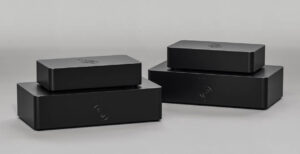
Reiki Audio SuperSwitch Master Pro + Servant Pro
- Mar 27, 2024
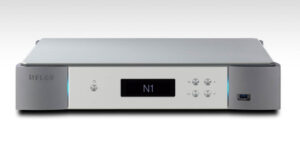
Melco Audio N1-S38 music server
- Mar 27, 2024
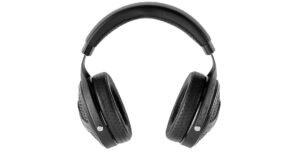
Focal Utopia 2022 headphones
- Mar 27, 2024

